The Independent's journalism is supported by our readers. When you purchase through links on our site, we may earn commission. Why trust us?
8 best suffragette books
From titles on the long battle for voting rights to the wider experience of women since 1918, these are the most powerful suffragette reads out there
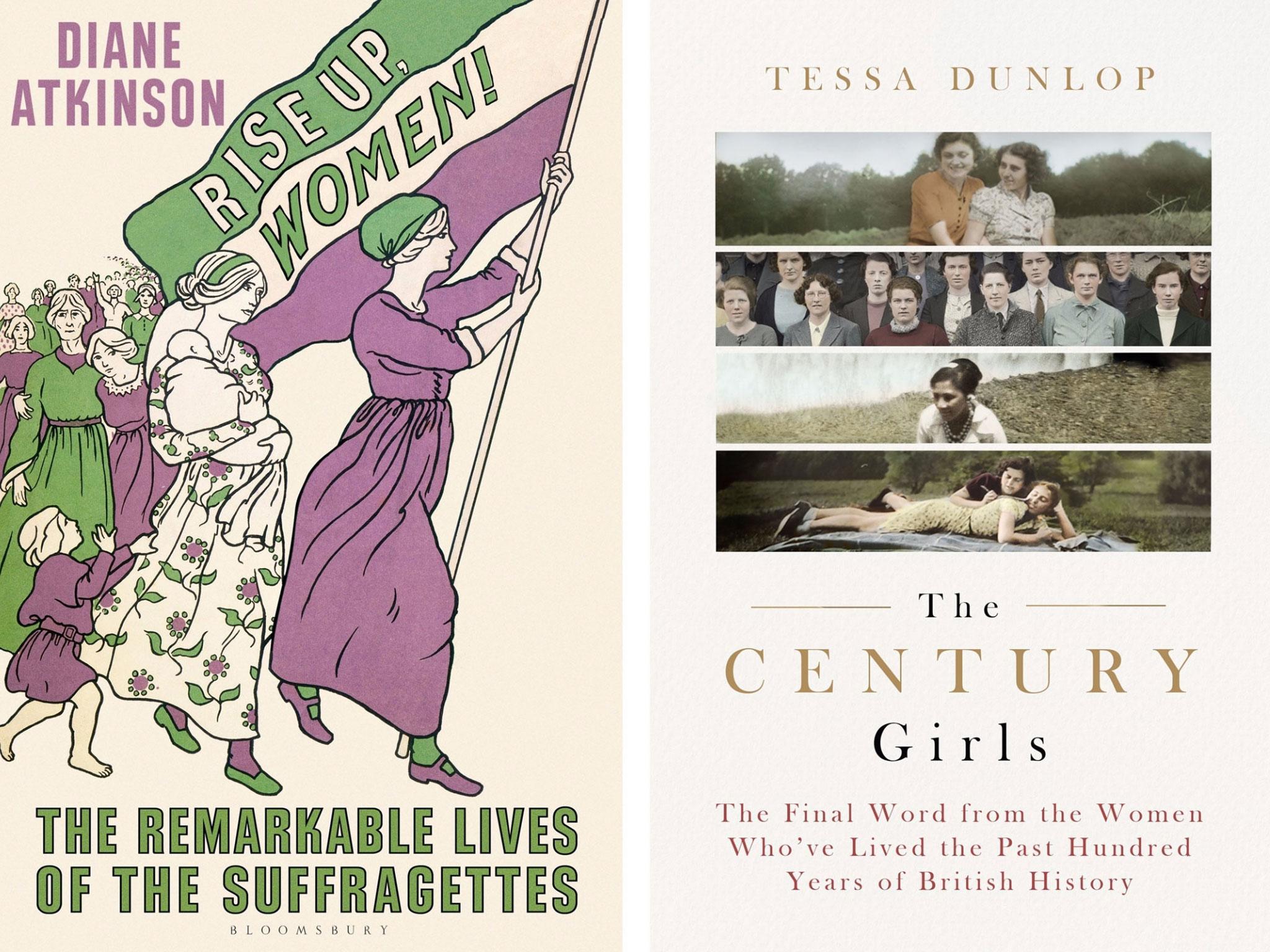
Your support helps us to tell the story
From reproductive rights to climate change to Big Tech, The Independent is on the ground when the story is developing. Whether it's investigating the financials of Elon Musk's pro-Trump PAC or producing our latest documentary, 'The A Word', which shines a light on the American women fighting for reproductive rights, we know how important it is to parse out the facts from the messaging.
At such a critical moment in US history, we need reporters on the ground. Your donation allows us to keep sending journalists to speak to both sides of the story.
The Independent is trusted by Americans across the entire political spectrum. And unlike many other quality news outlets, we choose not to lock Americans out of our reporting and analysis with paywalls. We believe quality journalism should be available to everyone, paid for by those who can afford it.
Your support makes all the difference.This year marks a century since the first women in society were given the right to vote in UK elections. Suffrage was granted to females over the age of 30 who were property owners (it wasn’t until 1928 that women were able to vote on the same grounds as men).
Many books about the suffragettes’ plight have followed. Most focus on the famed Pankhursts, but others have delved into the stories of lesser-known activists and the wider impact of their campaign. To mark this year’s milestone and International Women’s Day, we’ve picked eight of the best.
The below are selected for their insights into the long fight for the vote, their historic detail, or their comment on the broader experience of women since 1918. While some volumes follow only the suffragettes, others celebrate the “suffragists”: peaceful campaigners who avoided militant tactics but were no less instrumental in the battle. Most are very recent releases, with a couple of older titles included for their sheer staying power.
Deeds Not Words: The Story of Women’s Rights, Then And Now by Helen Pankhurst: £25, Sceptre
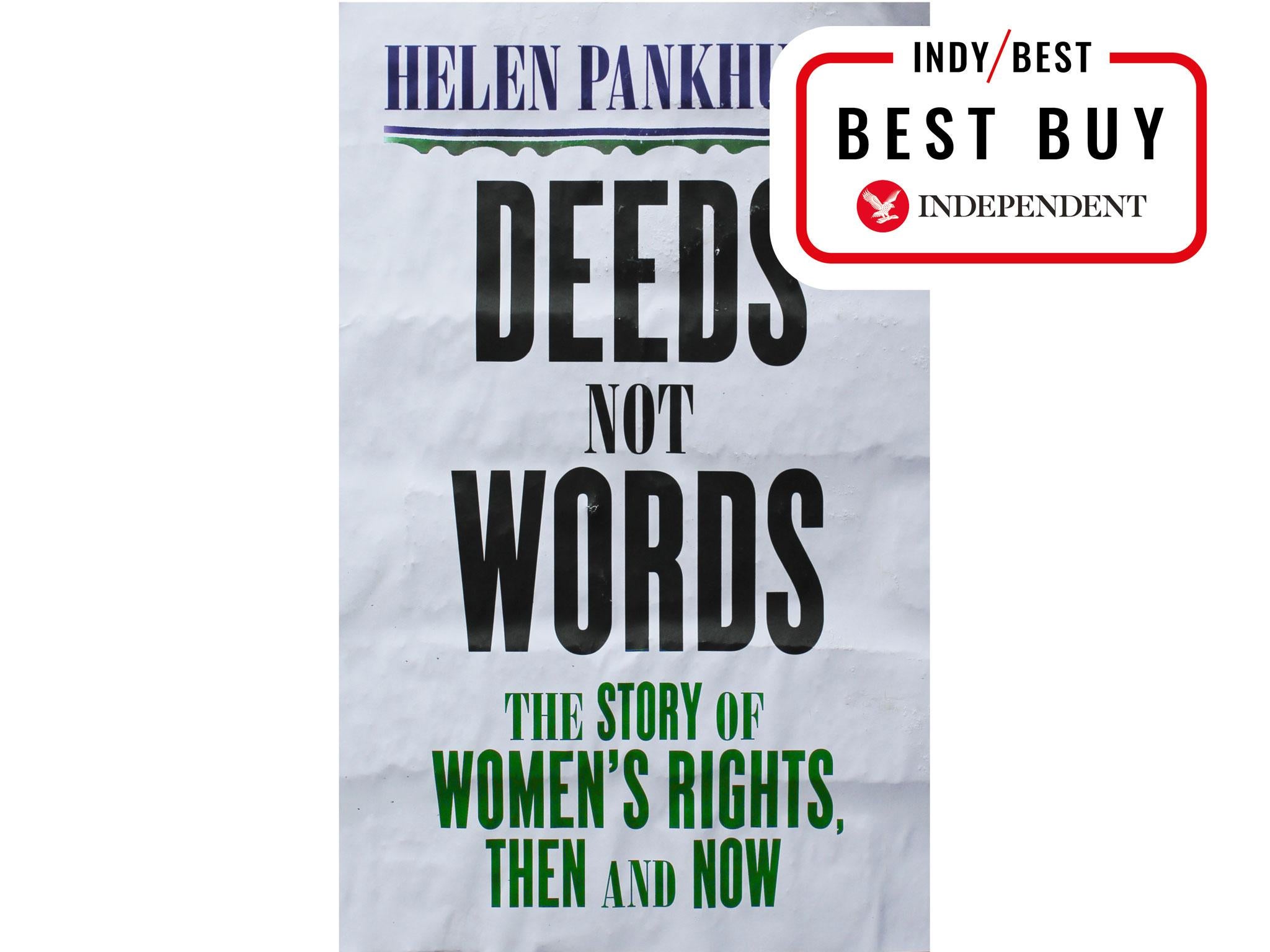
Penned by Helen Pankhurst, great granddaughter of suffragette leader Emmeline Pankhurst (and granddaughter of Sylvia), this is a frank and unflinching study of the female experience over 100 years.
Divided into six sections (politics, money, identity, violence, culture and power), the volume is concise given the ground covered. It sits somewhere between a reference book on gender issues through the ages, and an impassioned cry for change. Pankhurst celebrates victories – women’s rising political profile, increased economic opportunity – but laments the barriers that she feels remain: the continued violence at the hands of men, the objectification of female bodies, and the patriarchal power that still dominates in politics and many work places. Each chapter ends with a score out of five, indicating the progress made under that particular umbrella of social history.
There’s a lengthy list of footnotes, but Pankhurst’s own word counts for a lot, too. More than the successor of great activists, she is one herself: a doctor of the social sciences and a fierce campaigner for women’s rights internationally.
In 300 pages Pankhurst encapsulates just how far women have come since achieving suffrage – but also how much more there is to be done.
Rise Up Women!: The Remarkable Lives of the Suffragettes by Diane Atkinson: £30, Bloomsbury
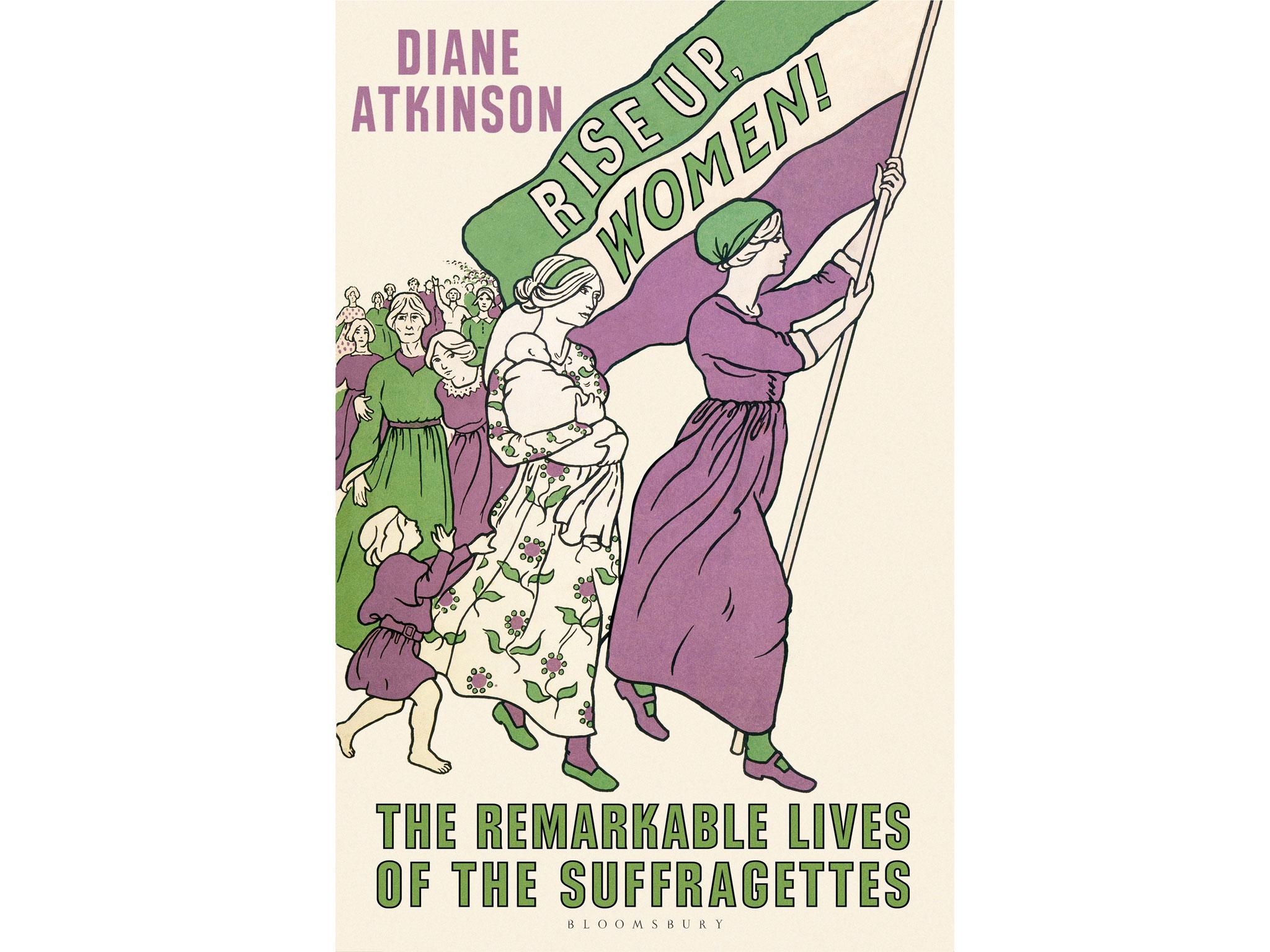
This near 700-page book is quite a tome, but its exacting history warrants the space. Diane Atkinson, the author of numerous well-received books on women in history, chronicles the militant struggle of the suffragettes in impressive and colourful detail.
In an early chapter, she muses that the campaign was “a defiant panorama of first nights, long runs, tragedies, comedies and coup de theatre”. And, written as a narrative history, the book succeeds in laying bare the suffragettes’ toils – but also in celebrating the flair and flamboyance of their controversial campaign.
The plot pushes on chronologically, spending ample time on key moments of the crusade. A moving chapter is that which documents Black Friday: a day in November 1910 when 150 women suffered police brutality during a protest. Generous extracts from the biographies of those women involved bring this and other events into sharp focus, and the black and white photographs throughout add further historic richness. A vivid and meticulous account.
Hearts And Minds: The Untold Story of the Great Pilgrimage and How Women Won the Vote by Jane Robinson: £20, Doubleday
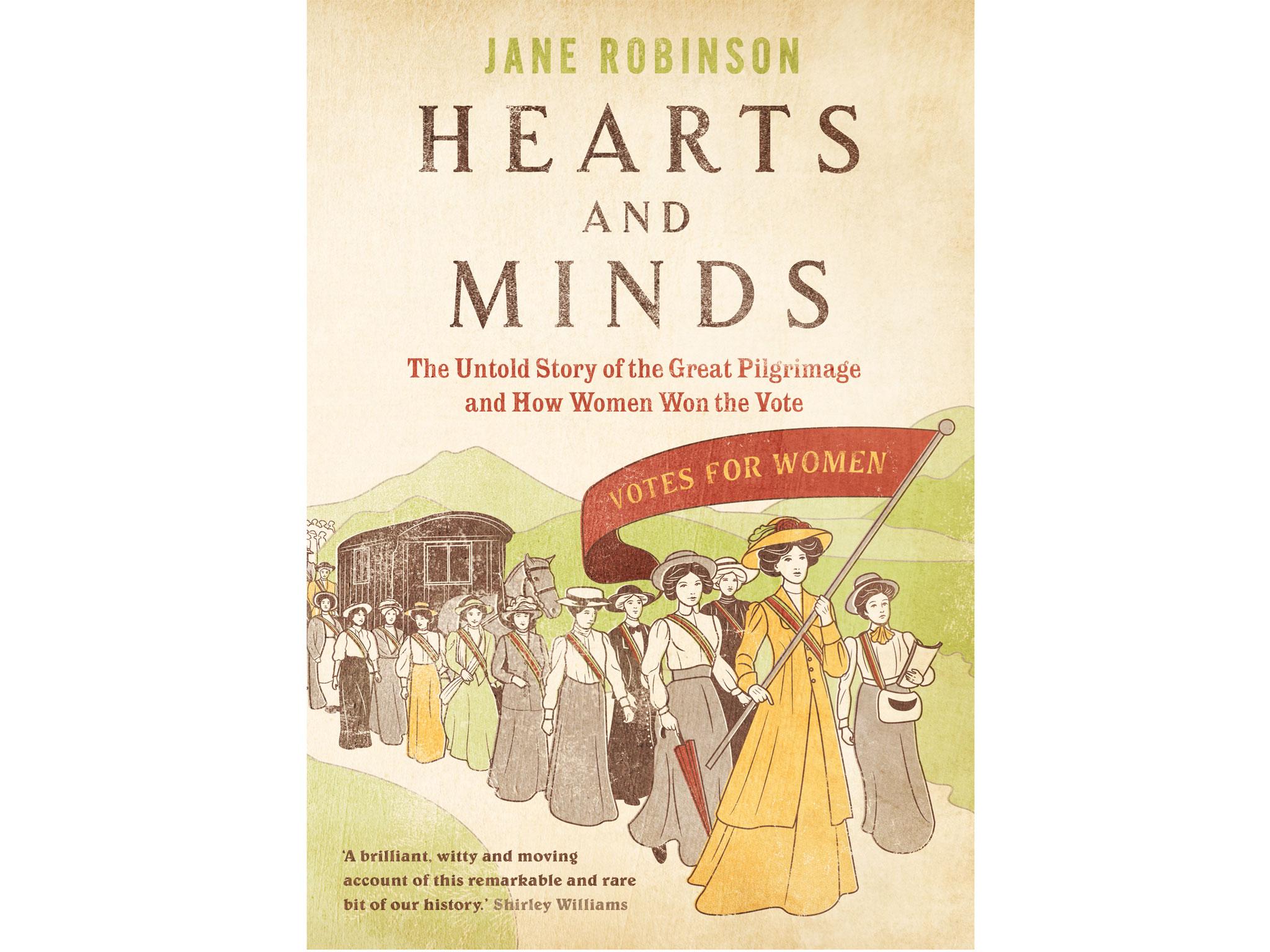
While the combative Pankhursts and their cohort made the headlines in the early 1900s, the vote was not won by this handful of women alone. It was the effort of a much greater collective.
In this account, historian and writer Jane Robinson sews together the stories of the “suffragists”, or non-militant campaigners, most of whom did not find themselves in prison or on a front-page splash.
Robinson’s experience as an archivist put her in great stead to bring together this shared biography. She documents the many organisations, the failed petitions, the peaceful protests, and in doing so demonstrates the broad spectrum of women involved in the campaign: factory workers, teachers, mothers, grandmothers, aristocrats, servants.
The narrative thrust is focused on the Great Pilgrimage – a mammoth march of more than 50,000 people, which culminated in a peaceful rally in London’s Hyde Park. Anecdotal and rich in detail, Robinson’s account moves effortlessly from suffragist to suffragist, using letters, journals and autobiographies to bring personal histories to life. It’s clearly a passion project for Robinson, and she manages to hold a fresh lens to this otherwise well-documented portion of history.
Sylvia Pankhurst: Rebellious Suffragette by Shirley Harrison: £9.99, Sapere Books
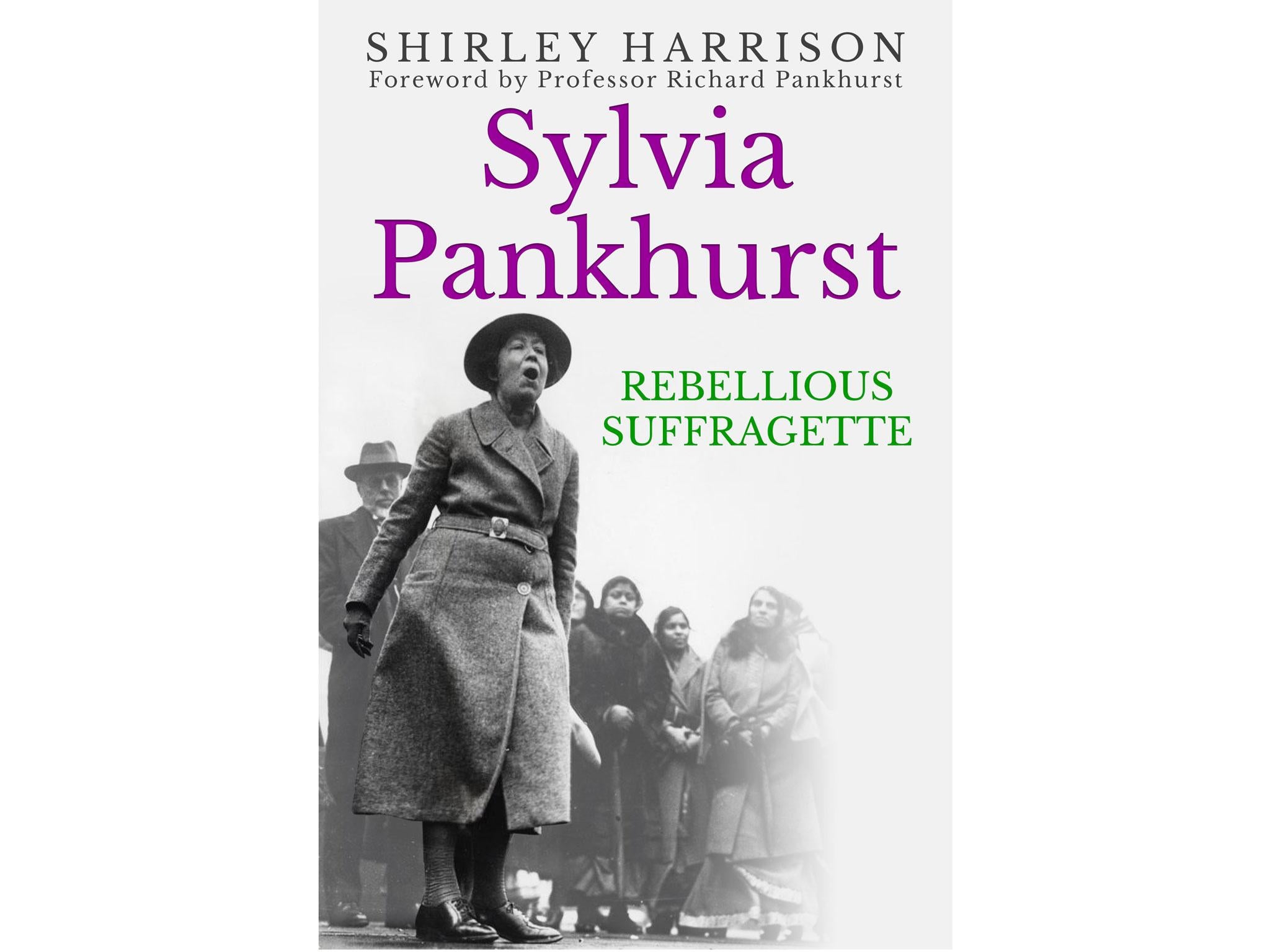
Once united in their quest for suffrage, the Pankhursts would eventually become estranged. While Christabel remained close to her mother, both Adela and Sylvia went their separate ways. Politically, at least, the gulf was perhaps largest between Sylvia and Emmeline – Sylvia was a staunch socialist and a pacifist who disapproved of her mother’s efforts in support of the war.
“Rebellious suffragette,” then, is a fitting title for her stirring story. The foreword is written by Sylvia’s son, academic Richard Pankhurst – he muses on what his mother would make of the issues of the day, from the state of the UN, to the British welfare system. The rest of her story is recounted by author Shirley Harrison (whose other biographies include Jack the Ripper and Winnie the Pooh, no less).
The biography spans Sylvia’s formative years, which were “shaped by the socialist movement”, her love of art and painting, her apathy towards domestic chores, her fight for Ethiopia’s independence from Italy, and her birth of a child out of wedlock (much to her mother’s abhorrence). Using Sylvia’s own journals and letters as a reference, Harrison succeeds in bringing her to life.
Death in Ten Minutes: Kitty Marion: Activist. Arsonist. Suffragette by Fern Riddell: £25, Hodder & Stoughton
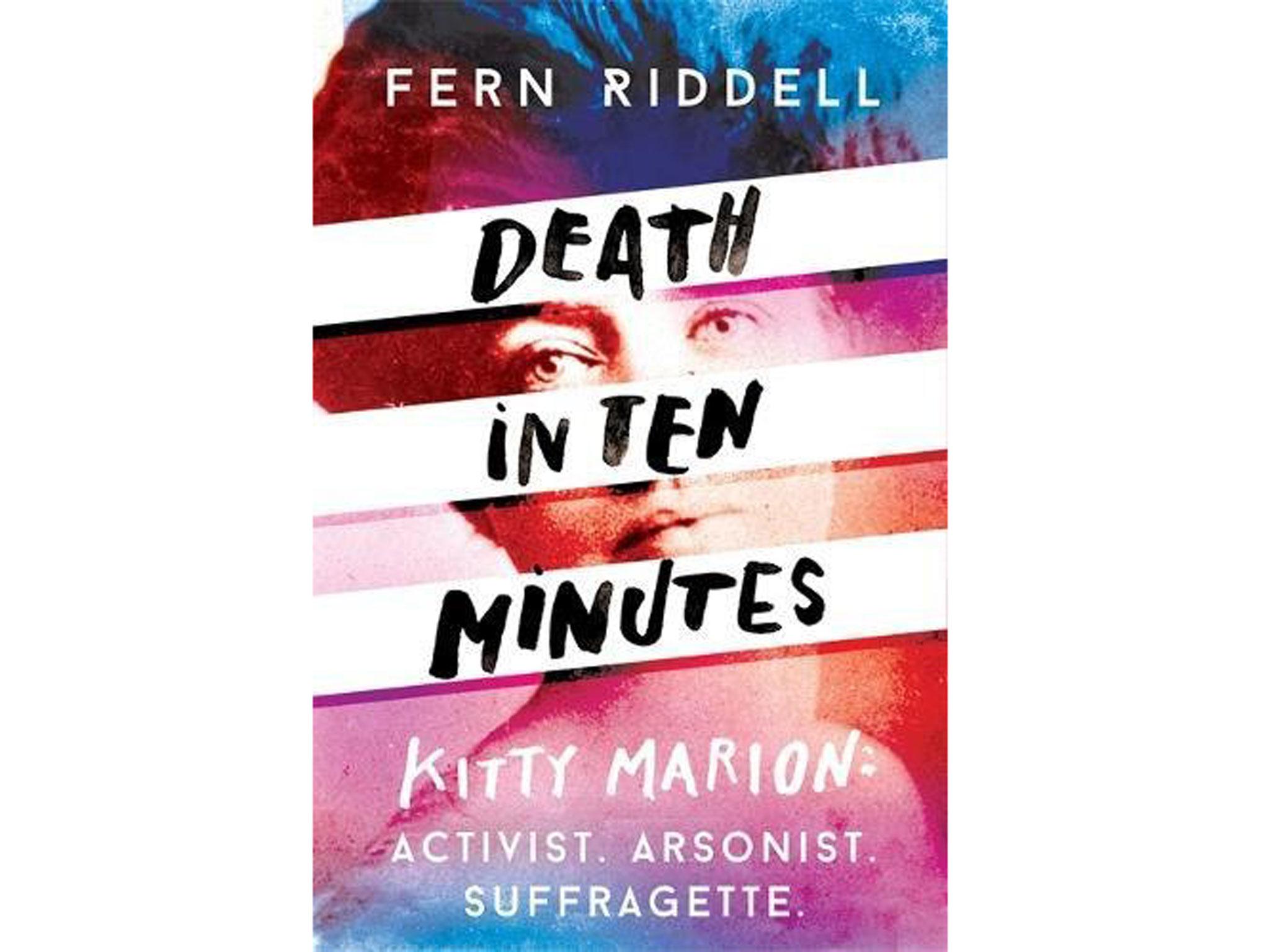
The tale this book tells is as explosive as its title. It focuses on the life of Kitty Marion, a militant suffragette and eccentric who made her living as an actor in music halls.
Historian Fern Riddell has said that she became “obsessed” by Marion when completing her PhD, and her fixation shines through in this dogged record of Marion’s movements during the battle for suffrage and beyond.
Riddell’s aim is to showcase the women and events in history that have been “deleted by the process of PR and simplified storytelling”. Punctuated with liberal extracts from Marion’s own unpublished autobiography, Riddell’s vivid prose follows this unsung heroine in her fight for birth control (she was an early founder of Planned Parenthood) and suffrage – but also her controversial bombing and arson campaign. Our heroes are flawed, says Riddell, but we should not distort or dilute their stories.
In this honest, unshrinking story of Marion’s life, Riddell practices what she preaches.
Pre-order now (released 19 April)
Suffragette: My Own Story by Emmeline Pankhurst: £7.99, Vintage
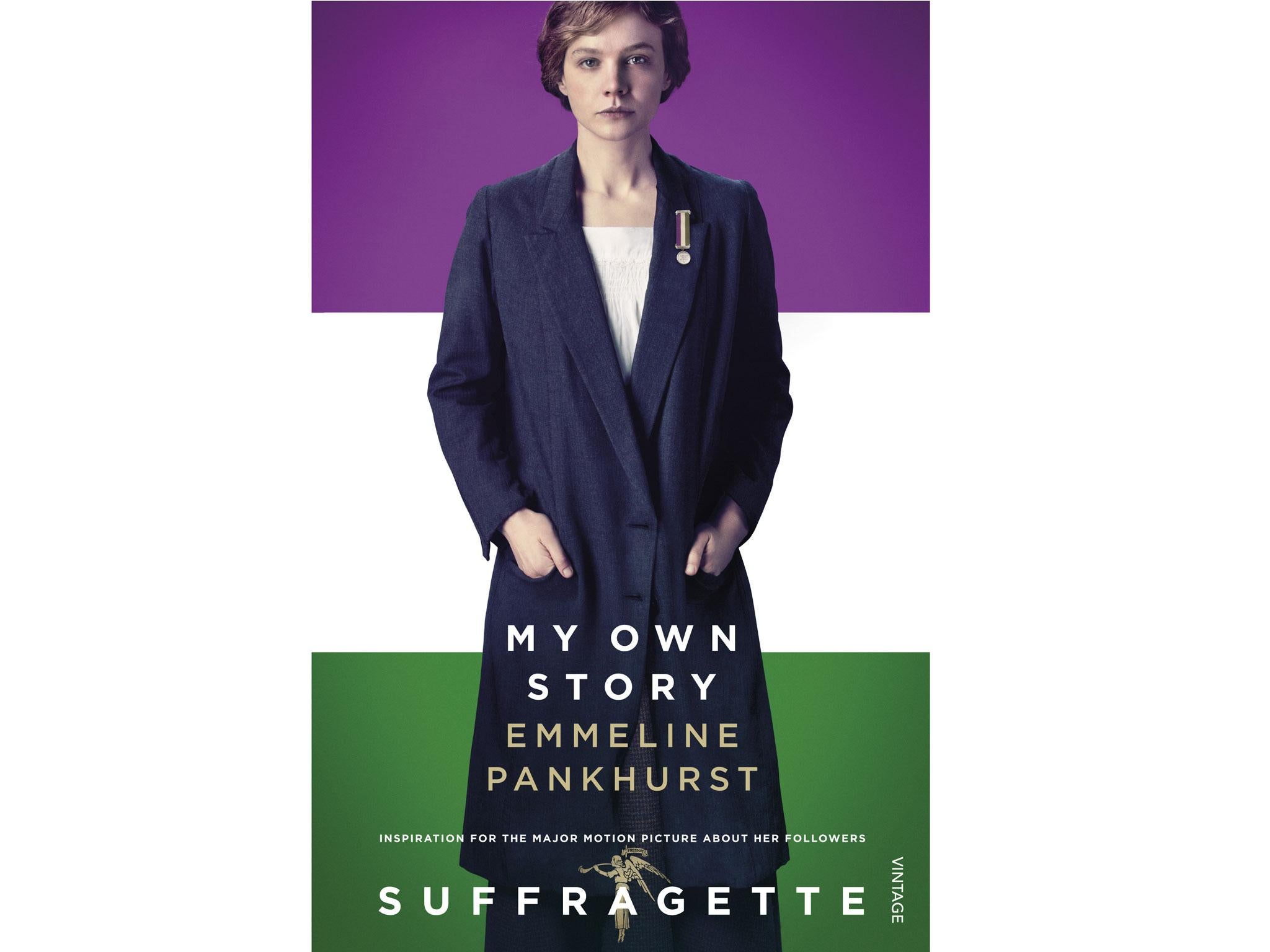
A list of this kind would not be complete without a word from the grande dame herself. Here, Emmeline Pankhurst recounts her own tale in 300 pages of staunch, sobering prose.
First published in 1914, it’s an accessible if not intimate view into the psyche of the best-known suffragette in history. This latest reprint (2015) is fronted by a pensive Carey Mulligan, who stars in the 2015 film Suffragette, inspired by this autobiography.
Pankhurst starts from the beginning. She writes early on of her frustration at her brothers’ education being valued more than her own, and her father’s wish that she was born a boy. The account stretches up to 1914, still four years short of suffrage for women, as she covers such ordeals as force feeding passionately yet plainly. “Had I remained there much longer, I should have been a dead woman,” she says of one stint in prison in 1913. The finished product rests somewhere between a gripping novel and a painstaking historical record. No view of the suffragette story is complete without this comprehensive puzzle piece.
Sally Heathcote: Suffragette by Mary Talbot, Kate Charlesworth, Bryan Talbot: £18.99, Jonathan Cape
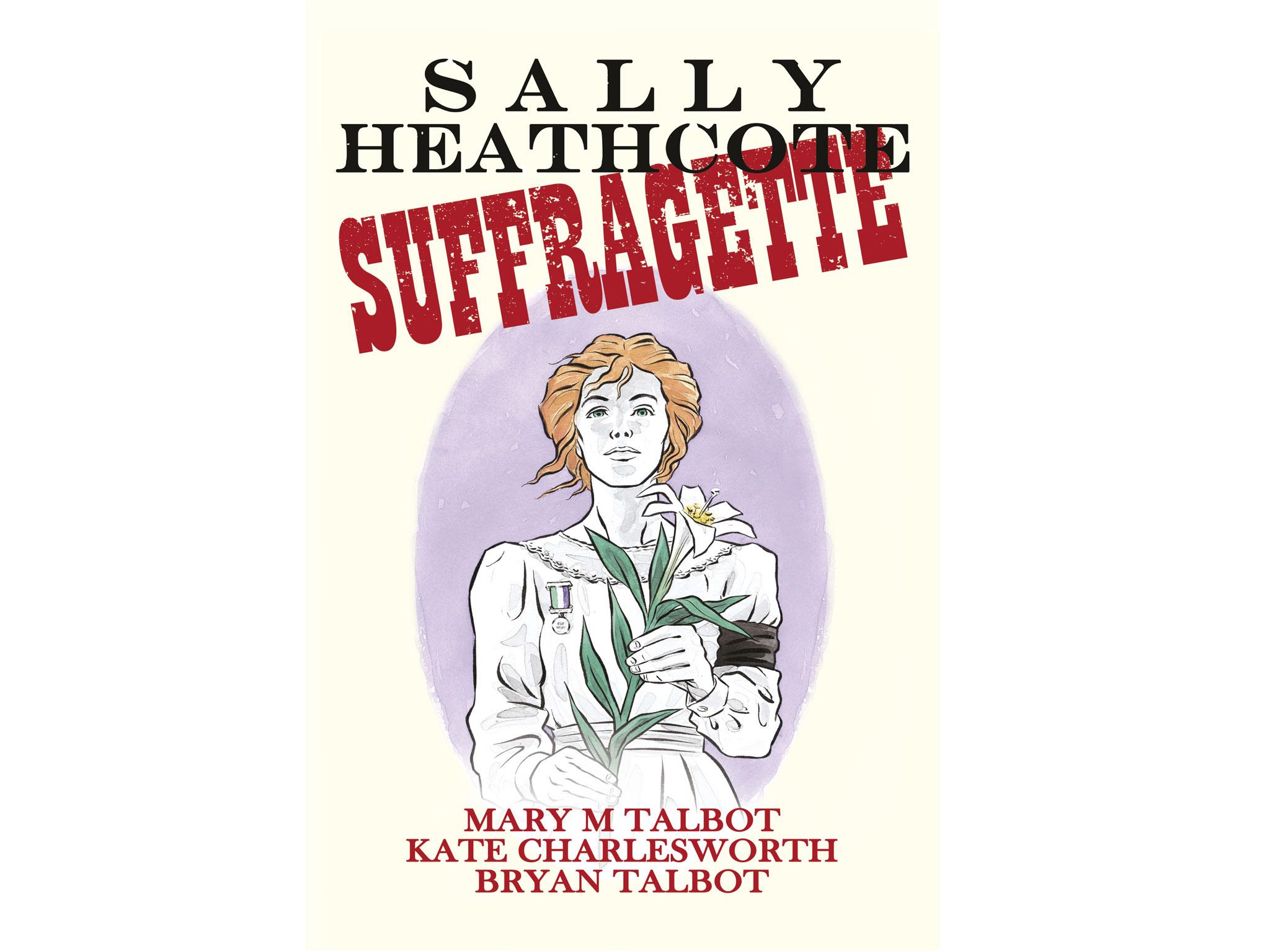
This book has been on our shelves since 2014, but it warrants a place on this list for its ingenuity. A graphic novel, it follows the story of its namesake, a fictional servant girl who finds herself swept up in the full furore of the suffragette campaign. A seamless blend of historical fact and fiction, the novel allows both the Pankhursts and the Pethick-Lawrences (a married couple who were key players in the appeal for suffrage) starring roles.
The illustrations are full of energy and expression, black and white for the most part but with carefully placed pops of purple and green, and orange for the protagonist’s fiery ginger hair. To continue its historical clout, the book finishes with a timeline relating to women’s suffrage and other significant milestones, as well as notes that breathe further real-life significance into moments of the plot.
It’s a collaboration between writer and scholar Mary Talbot, and talented artists and cartoonists Bryan Talbot and Kate Charlesworth.
The Century Girls: The Final Word from the Women Who’ve Lived the Past Hundred Years of British History by Tessa Dunlop: £20, Simon & Schuster
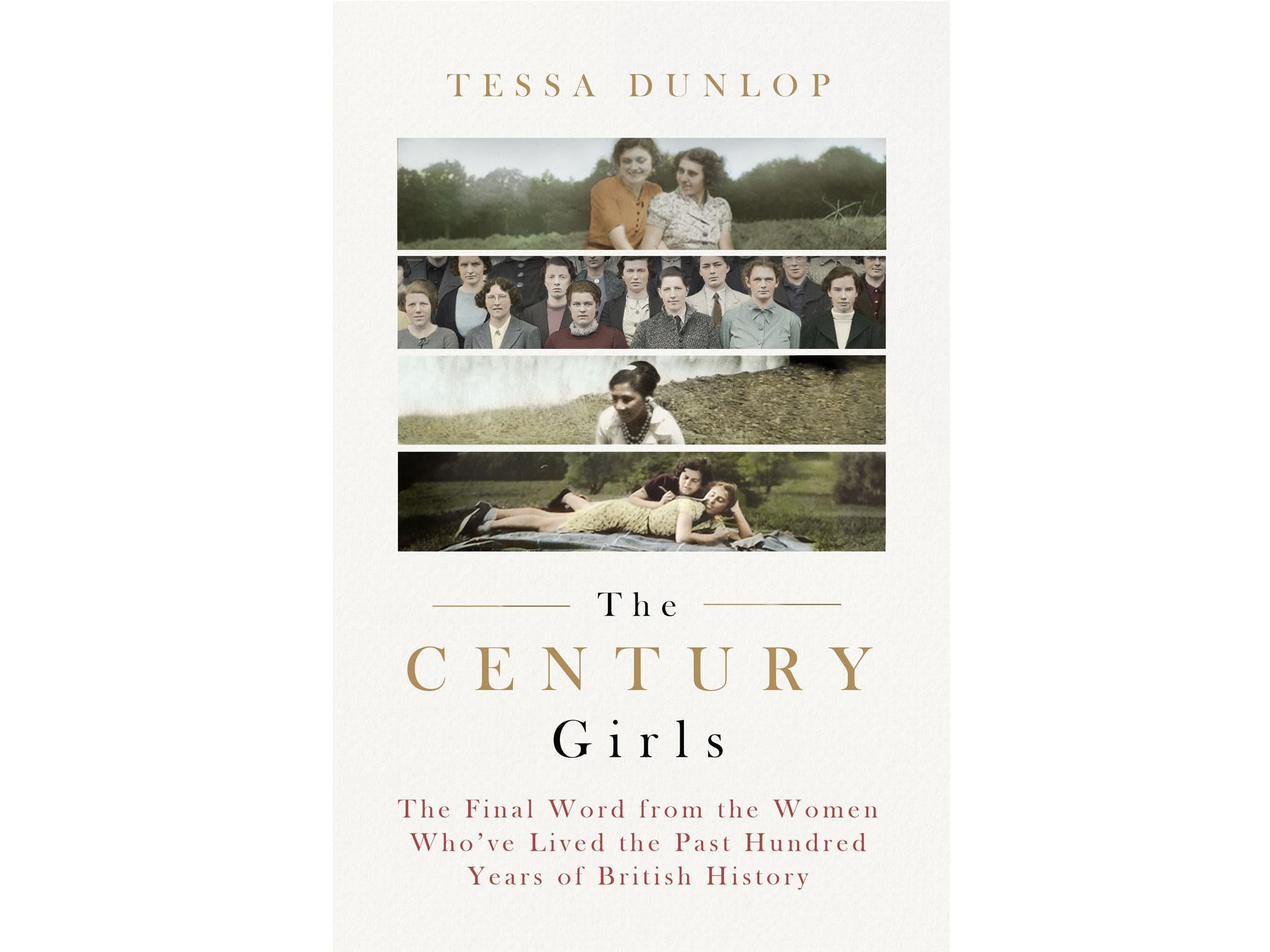
This book does not follow the troubles and triumphs of the Pankhursts, but it is intrinsically linked to their plight. The leading ladies here are six special women, each of whom were born towards the end, or in the immediate wake, of the suffrage campaign.
Historian and broadcaster Tessa Dunlop (best known for her work on the BBC) made pains to select women from broad walks of life, and succeeds in weaving a rich tapestry of experiences. Ann, Olive, Helena, Phyllis, Joyce and Edna all reflect on their long lives and the changing lot of women over time. Dunlop’s line-up runs the gamut from a “Lincolnshire lass” and servant girl (Edna), to a Cambridge fellow born into relative privilege (Joyce).
But despite their differences these women share a common stoicism and charm. References to the suffragettes are laced throughout: Londoner Ann called her childhood doll “Panky” after her suffragette neighbour, while Joyce remembers her mother sobbing as she voted for the very first time.
Dunlop is playful and probing in her questioning, covering everything from sex and relationships to feminism – and it’s clear she formed a lasting friendship with each of the women interviewed.
The Verdict: Suffragette books
For a blanket history of the suffragette movement, Diane Atkinson’s Rise Up, Women! should be your pick. This hefty volume leaves few stones unturned, chronicling the campaign in scrupulous detail. But for a broader perspective that captures not only the drive for suffrage itself but its impact on today’s society and the broader experience of women since, Helen Pankhurst’s Deeds not Words truly delivers. You’ll lay the book down feeling not only informed, but galvanised to take action yourself.